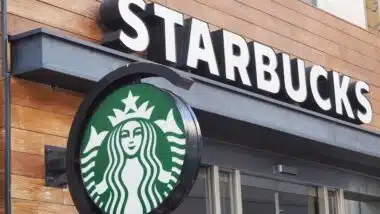 Fast-food workers may see more opportunities for advancement at McDonald’s now that the company has removed the no poaching employees clause from franchise contracts.
Fast-food workers may see more opportunities for advancement at McDonald’s now that the company has removed the no poaching employees clause from franchise contracts.
McDonald’s is one of seven fast-food restaurants that agreed to halt the policies that prevented employees from going from one franchise to another for promotions or higher wages. The policy change was prompted by an investigation into the no poaching employees clause led by Washington State Attorney General Bob Ferguson.
The topic of no poaching employee clauses came to light when the New York Times published an article on this subject in September 2017. For years, unbeknownst to the employees affected by the clause, wages and promotional opportunities at many fast-food restaurants were limited due to a no poaching employees clause that was placed in every franchise’s contract with the parent company’s corporate headquarters. The employees never see these contracts, which means the people whose livelihood was negatively impacted didn’t even know why they were prevented from transferring to a different outlet.
By honoring the clause, franchises benefited in a variety of ways. But those benefits came at a cost to their employees. Trained employees were unable to transfer to another nearby franchise for better pay or an easier commute, which meant the franchise had little incentive to offer better pay or benefits. By keeping costs low, franchises could keep their menu prices low, too.
In addition to McDonald’s, several other fast-food restaurants agreed in July to discontinue placing the no poaching verbiage in their contracts. Carl’s Jr., Arby’s, Auntie Anne’s, Buffalo Wild Wings, Cinnabon and Jimmy John’s are the other companies that discontinued placing the no poach clauses in new agreements and agreed to remove no poaching clauses in existing agreements.
Eight More Remove No Poaching Employees Clause
Applebee’s, IHOP, Five Guys Burgers & Fries, Panera Bread, Church’s Chicken, Jamba Juice, Little Caesars and Sonic recently agreed to remove their no poaching employees clauses from their franchise contracts, too, announced Ferguson’s office.
Ferguson’s office released a statement saying, “Businesses can’t rig the system to avoid competition. Other fast-food companies that use no-poach provisions are now on the clock to accept a similar deal or face litigation from my office,” according to a San Francisco Chronicle article.
According to the Attorney General’s office, the inclusion and enforcement of a no poaching employees clause is a violation of antitrust laws because it decreases competition.
The annihilation of no poaching employees clauses throughout fast-food corporations should open up opportunities for advancement, better wages, shorter commutes and other employee benefits that have been hindered, said Ferguson’s office.
If you work for a fast-food restaurant and believe your wages and advancement opportunities have been negatively affected by a no poaching clause, you could benefit from speaking with a lawyer regarding your options for legal recourse.
Join a Free Fast Food Employee Poaching Class Action Lawsuit Investigation
If you work for McDonald’s, Jimmy John’s, Pizza Hut, Little Caesars, Papa John’s, Domino’s, Burger King or Arby’s and were prevented from moving to a different franchise that is part of the same company, you may have been the victim of a no-poach agreement. If so, you may qualify to participate in this employee poaching class action lawsuit investigation.
ATTORNEY ADVERTISING
Top Class Actions is a Proud Member of the American Bar Association
LEGAL INFORMATION IS NOT LEGAL ADVICE
Top Class Actions Legal Statement
©2008 – 2025 Top Class Actions® LLC
Various Trademarks held by their respective owners
This website is not intended for viewing or usage by European Union citizens.















One thought on McDonald’s Among Restaurants to Remove No Poaching Employees Clause
McDonald’s in Walterboro, SC don’t offer paid vacations. I worked there for 12 years as a manager and we didn’t get vacations. Is there anything that can be done about this?